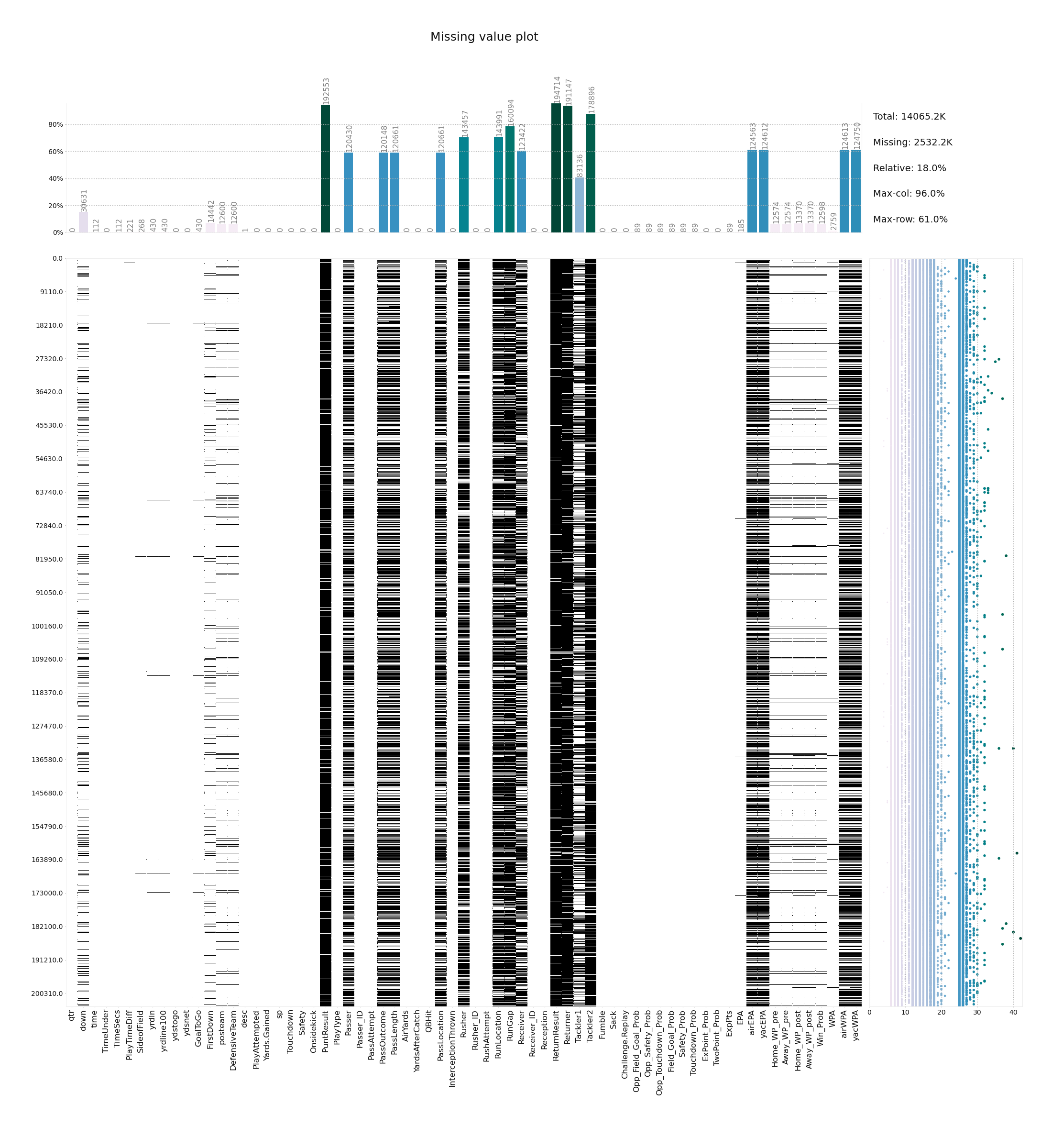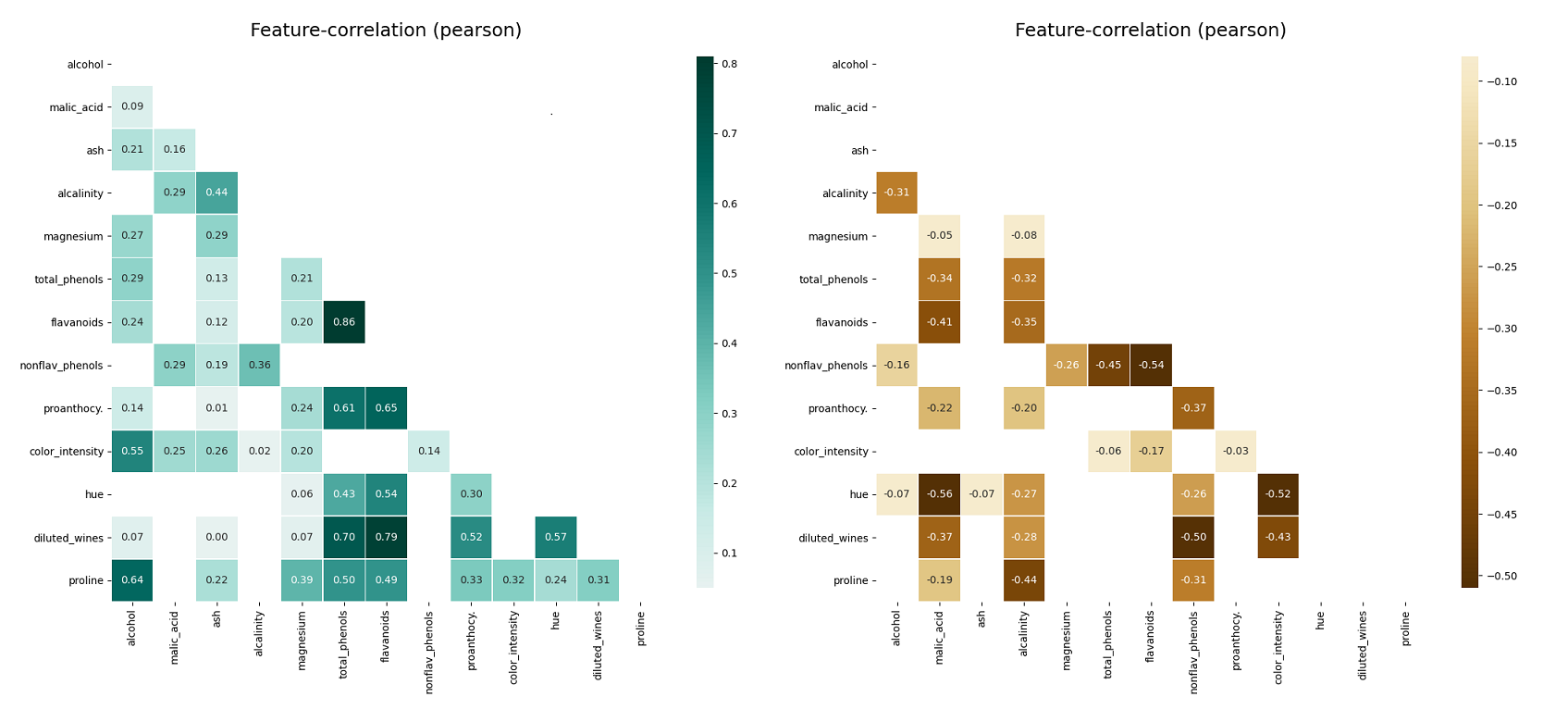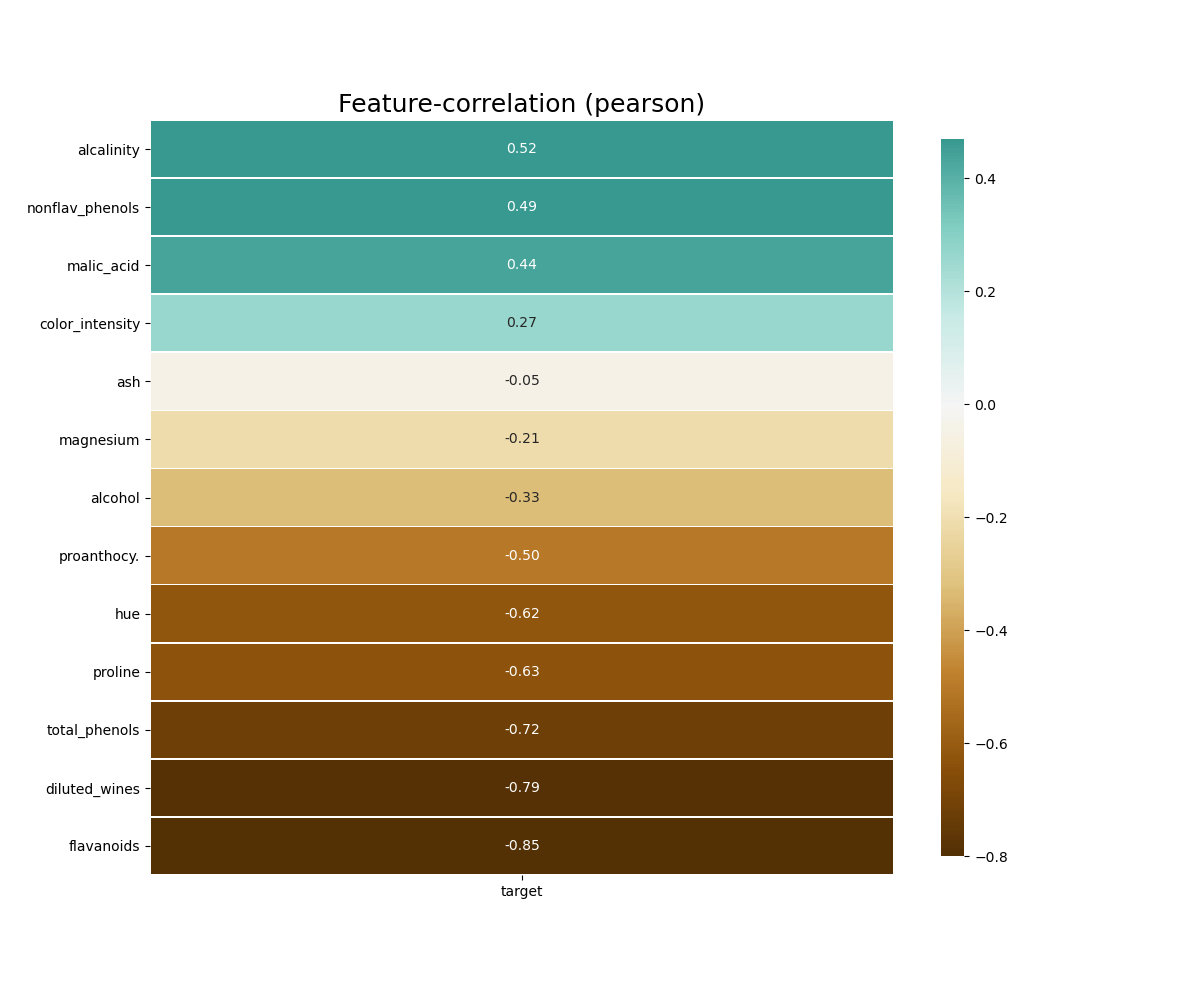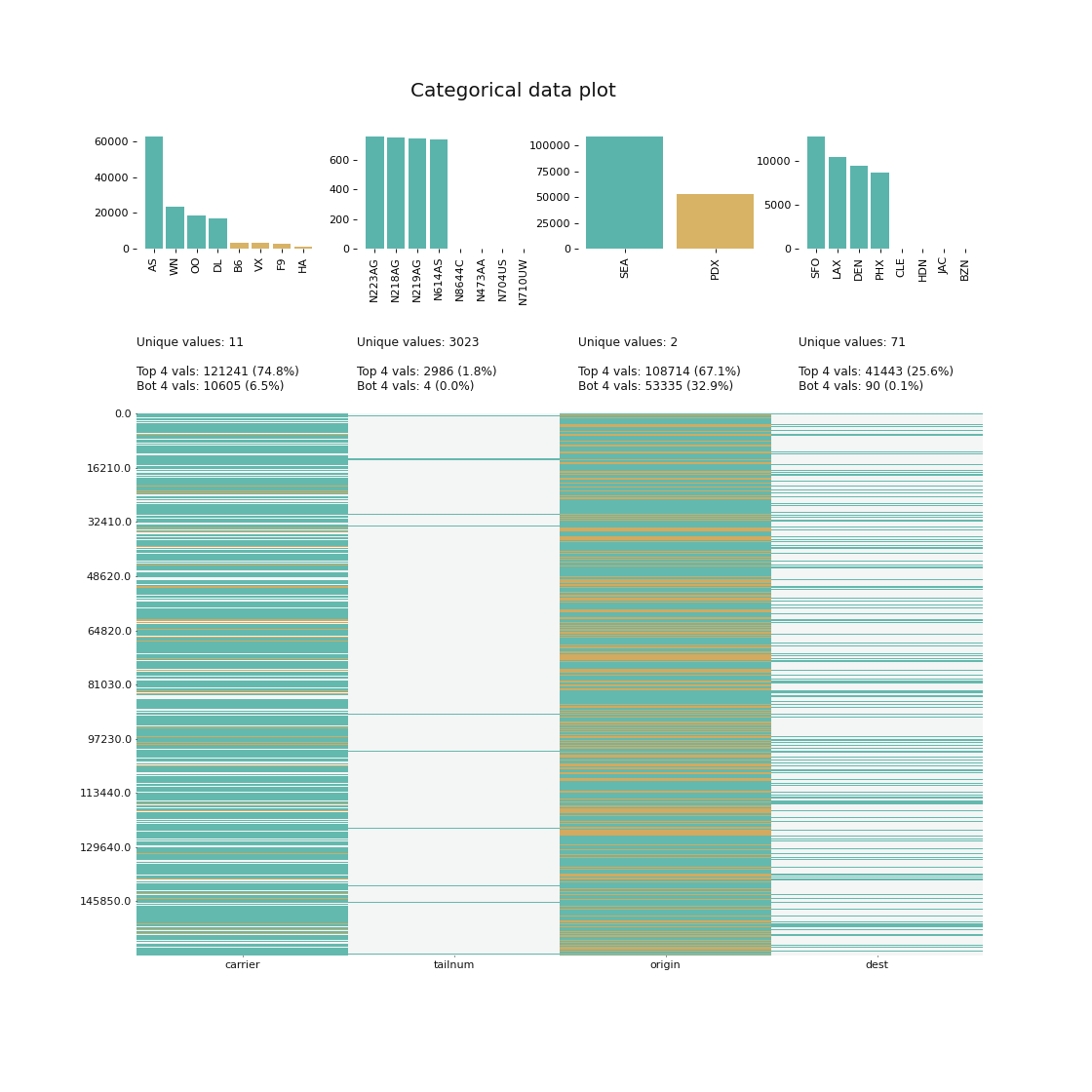klib is a Python library for importing, cleaning, analyzing and preprocessing data. Explanations on key functionalities can be found on Medium / TowardsDataScience in the examples section or on YouTube (Data Professor).
Use the package manager pip to install klib.
pip install -U klibAlternatively, to install this package with conda run:
conda install -c conda-forge klibimport klib
import pandas as pd
df = pd.DataFrame(data)
# klib.describe - functions for visualizing datasets
- klib.cat_plot(df) # returns a visualization of the number and frequency of categorical features
- klib.corr_mat(df) # returns a color-encoded correlation matrix
- klib.corr_plot(df) # returns a color-encoded heatmap, ideal for correlations
- klib.dist_plot(df) # returns a distribution plot for every numeric feature
- klib.missingval_plot(df) # returns a figure containing information about missing values
# klib.clean - functions for cleaning datasets
- klib.data_cleaning(df) # performs datacleaning (drop duplicates & empty rows/cols, adjust dtypes,...)
- klib.clean_column_names(df) # cleans and standardizes column names, also called inside data_cleaning()
- klib.convert_datatypes(df) # converts existing to more efficient dtypes, also called inside data_cleaning()
- klib.drop_missing(df) # drops missing values, also called in data_cleaning()
- klib.mv_col_handling(df) # drops features with high ratio of missing vals based on informational content
- klib.pool_duplicate_subsets(df) # pools subset of cols based on duplicates with min. loss of information
# klib.preprocess - functions for data preprocessing (feature selection, scaling, ...)
- klib.train_dev_test_split(df) # splits a dataset and a label into train, optionally dev and test sets
- klib.feature_selection_pipe() # provides common operations for feature selection
- klib.num_pipe() # provides common operations for preprocessing of numerical data
- klib.cat_pipe() # provides common operations for preprocessing of categorical data
- klib.preprocess.ColumnSelector() # selects num or cat columns, ideal for a Feature Union or Pipeline
- klib.preprocess.PipeInfo() # prints out the shape of the data at the specified step of a PipelineFind all available examples as well as applications of the functions in klib.clean() with detailed descriptions here.
klib.missingval_plot(df) # default representation of missing values in a DataFrame, plenty of settings are availableklib.corr_plot(df, split='pos') # displaying only positive correlations, other settings include threshold, cmap...
klib.corr_plot(df, split='neg') # displaying only negative correlationsklib.corr_plot(df, target='wine') # default representation of correlations with the feature columnklib.dist_plot(df) # default representation of a distribution plot, other settings include fill_range, histogram, ...klib.cat_plot(data, top=4, bottom=4) # representation of the 4 most & least common values in each categorical columnFurther examples, as well as applications of the functions in klib.clean() can be found here.
Pull requests and ideas, especially for further functions are welcome. For major changes or feedback, please open an issue first to discuss what you would like to change.










